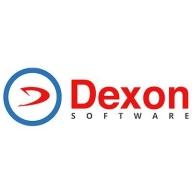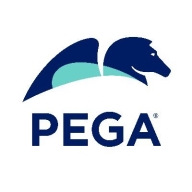

Pega Platform and Dexon BPM compete in the BPM space, each offering distinct advantages based on organizational needs. Pega Platform leads with its pricing and support benefits, while Dexon BPM impresses with comprehensive features that many users feel justify the investment.
Features: Pega Platform is known for its advanced automation, AI-driven analytics, and flexibility to adapt to various business processes. Dexon BPM distinguishes itself with customizable workflows and integration capabilities, offering a more flexible feature set. The main difference is Pega's focus on automation versus Dexon's strength in workflow customization.
Ease of Deployment and Customer Service: Pega Platform is recognized for scalable deployment options and strong customer support, providing assistance throughout the setup process. Dexon BPM offers straightforward deployment with high adaptability and responsive support. The principal contrast lies in Pega's emphasis on scalability and extensive assistance vis-à-vis Dexon's adaptability and prompt service.
Pricing and ROI: Pega Platform offers a lower setup cost and favorable ROI for its automation features, making it a cost-effective choice for large-scale implementations. Dexon BPM involves a higher upfront investment, but its rich feature set is seen as delivering strong ROI over time. The primary difference is Pega's cost-effective entry versus Dexon's perceived long-term value.

With DEXON BPM, our clients can define and implement in a single application, the flow of their processes, the business data used, the information systems, the people and the organizational structure for the optimization and automation of business processes
Pega Platform facilitates business process management, case management, and workflow automation for industries like banking, insurance, and healthcare. It supports digital transformation and customer service enhancements with its low-code capabilities and seamless integrations.
Pega Platform enables users to create efficient systems for case management, financial operations, and digital transformations. It provides tools for client onboarding, quoting, claims processing, customer experience improvements, and content management. Pega's low-code approach allows for the automation of complex processes, making it suitable for enterprises looking for adaptability and rapid deployment. While it offers strong real-time analytics and decision automation, users acknowledge challenges in user interface, integration, and performance aspects. High costs and a learning curve need attention, and enhancements in AI features and cloud services are desired.
What are the key features of Pega Platform?In banking, Pega Platform automates loan processing, accelerates customer onboarding, and manages compliance. Insurance companies benefit from streamlined claims processing and policy management. Healthcare sectors use the platform for patient engagement and care coordination, enabling organizations to adapt quickly to changing industry requirements.
We monitor all Business Process Management (BPM) reviews to prevent fraudulent reviews and keep review quality high. We do not post reviews by company employees or direct competitors. We validate each review for authenticity via cross-reference with LinkedIn, and personal follow-up with the reviewer when necessary.